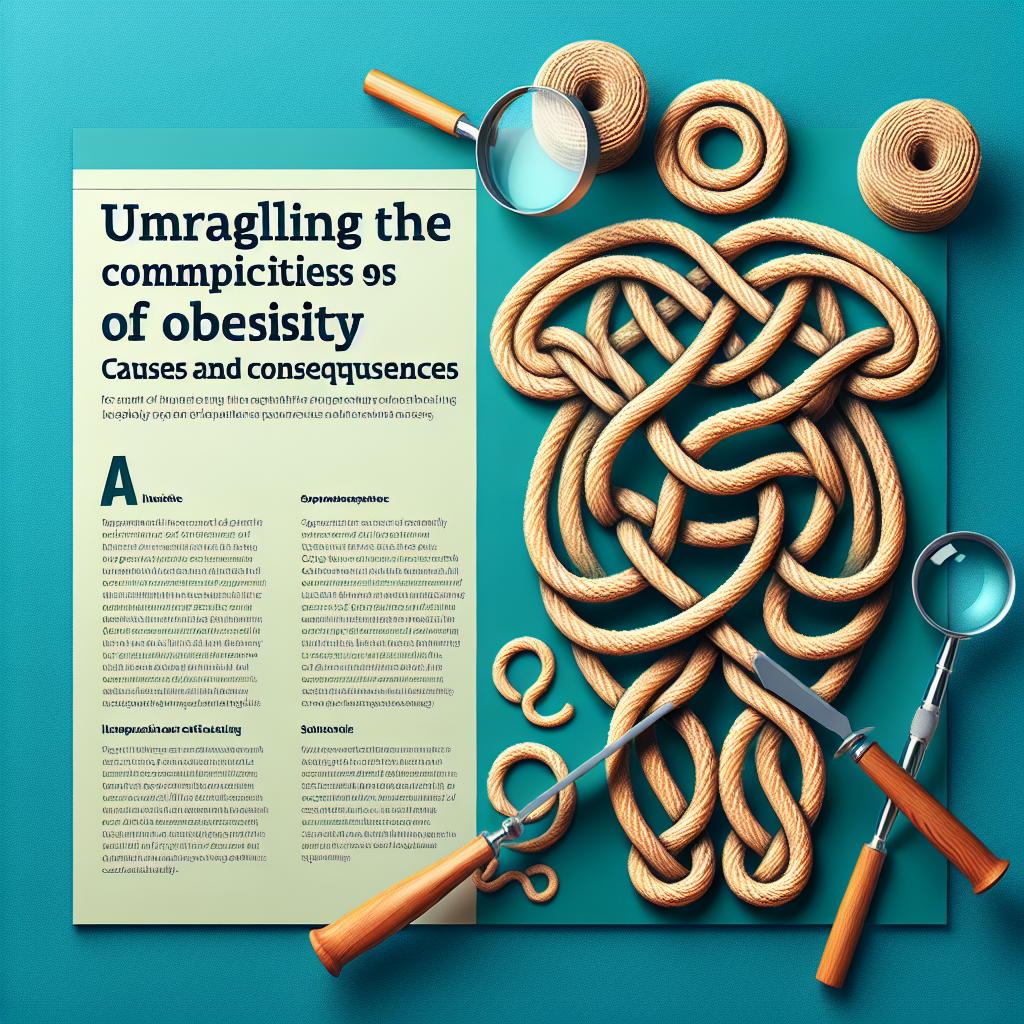Understanding Obesity
Obesity is a complex disease pertaining to an excessive amount of body fat. Representation of an unhealthy lifestyle, it is determined from a simple body mass index (BMI) calculation. A BMI over 30 is generally considered obesity. Consisting of issues much more complex than overeating and a sedentary lifestyle, obesity is multilayered with intricate causes and severe consequences.
Causes of Obesity
Understanding the causes of obesity is multifaceted, involving a combination of genetic, environmental, and psychological factors. A detailed look into these factors offers a more constructed insight.
Genetics
Genetic factors play a significant role in addressing obesity. Certain individuals are genetically vulnerable to obesity, and such a predisposition requires environmental triggers. However, genetics is not destiny—modifying a lifestyle can help control the impacts.
Diet
A diet rich in fats, sugars, and high-calorie foods combined with inadequate physical activity can lead to an energy imbalance and thus, obesity. The convenience of processed meals, fast food, and sugary beverages also contributes to unhealthy dietary practices.
Sedentary Lifestyle
The modern lifestyle devotes less time for physical activities and more towards desk jobs and viewing screens—televisions or computers. This sedentary lifestyle aggravates the risk of obesity.
Psychological Factors
Factors like stress, emotional trauma, or even boredom can lead to overeating habits, contributing to weight gain. Mental health disorders like depression, anxiety, or binge eating disorder also add complexity to obesity causes.
The Consequences
Obesity has a profound impact on physical health, leading to various health complications and increasing the risk of numerous diseases.
Health Risks
High blood pressure, high cholesterol, diabetes, heart diseases, stroke, arthritis, sleep apnea, and even certain cancers are among the many health implications of obesity.
Mental Health Impacts
Besides the physical impact, obesity has a significant effect on one’s mental health. It can lead to depression, feelings of inadequacy, social isolation, and low self-esteem—disrupting not only a physical state but a mental one as well.
Conclusion
Unraveling the complexities of obesity indeed sheds light on its multilayered causes and severe consequences. While genetics can increase the risk, lifestyle choices can actively mitigate it. Unhealthy diets, sedentary lifestyles, and certain psychological factors heighten the risk even more. As such, obesity’s onslaught goes beyond physical health, striking mental well-being. However, it’s important to remember that with awareness, individual effort, and the right support, obesity can be managed successfully.
Frequently Asked Questions
1. Can genetics alone cause obesity?
No, genetics combined with a lifestyle can cause obesity. Even with a genetic predisposition, modifying a lifestyle can limit impacts.
2. How does diet contribute to obesity?
A diet high in fats, sugars, and calories can lead to obesity, especially in a sedentary lifestyle with inadequate physical activity.
3. What are health risks associated with obesity?
Obesity can lead to health issues like high blood pressure, high cholesterol, diabetes, heart diseases, stroke, arthritis, sleep apnea, and certain cancers.
4. Does obesity affect mental health?
Yes, obesity can lead to depression, feelings of inadequacy, social isolation, and low self-esteem, affecting one’s mental health.
5. Is obesity curable?
Yes, with lifestyle modifications like regular physical activity and a balanced diet, obesity can be managed successfully.

Leave a Reply